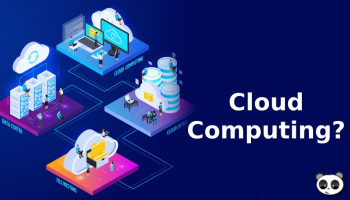Top 10 Largest Cloud Computing Companies in Australia
Cloud computing has grown in popularity in recent years, with 42% of Australian firms currently utilizing paid cloud computing. If you’ve yet to make your move ... read more...to the cloud, or are simply looking to update your services – here are 10 of the Largest Cloud Computing Companies in Australia by Revenue.
-
Amazon Web Services (AWS) is an Amazon company that provides metered, pay-as-you-go cloud computing platforms and APIs to individuals, corporations, and governments. Amazon Web Services (AWS) is well-known for providing a diverse range of personal and business cloud solutions.
With AWS server farms, these cloud computing web services provide a diverse range of networking, computation, storage, middleware, IOT, and other processing capabilities, as well as software tools.
Clients can access AWS services through a global network of Amazon server farms. Costs are computed depending on usage (a "pay-as-you-go" model), hardware, operating system, software, or networking characteristics selected by the subscriber, as well as availability, redundancy, security, and service options. Subscribers can purchase a single virtual AWS machine, a dedicated physical computer, or a mix of the two.
Certain components of security are given by Amazon to customers (for example, the physical security of data centers), while other aspects of security are the subscriber's responsibility. AWS operates from numerous locations across the world, including seven in North America.
Founded: 2006
Headquarters: Seattle, Washington, USOfficial website: https://aws.amazon.com/
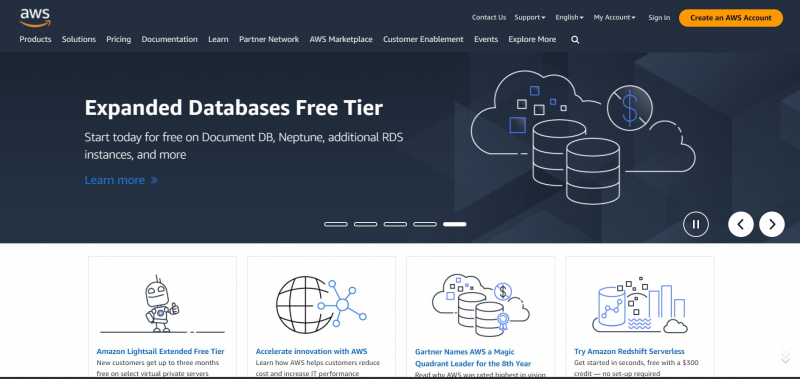
Screenshot via aws.amazon.com 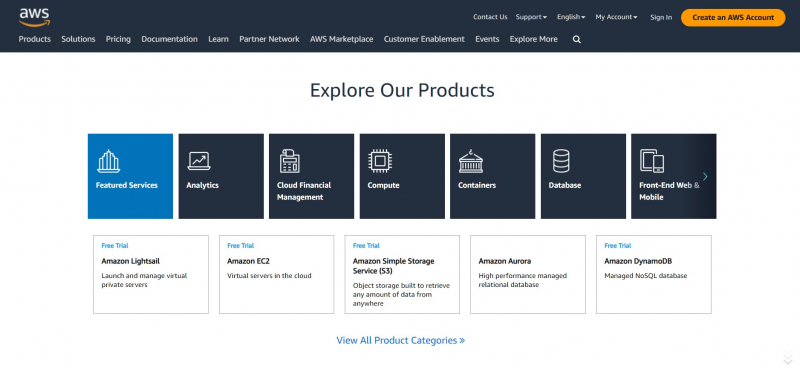
Screenshot via aws.amazon.com -
Microsoft Azure, formerly known as Windows Azure, is the company's public cloud computing platform. It ranks 1st on the list of the largest cloud computing companies in Australia by revenue. It offers a wide range of cloud services, including computation, analytics, storage, and networking. Customers can select from these services to develop and grow new apps or operate existing applications in the public cloud.
The Azure platform is designed to assist organizations in managing difficulties and meeting organizational goals. It provides tools for all industries, including e-commerce, finance, and a number of Fortune 500 organizations, and is compatible with open-source technologies. This allows users to utilize their favorite tools and technologies.
Furthermore, Azure provides four types of cloud computing services: infrastructure as a service (IaaS), platform as a service (PaaS), software as a service (SaaS), and serverless functions. Microsoft charges for Azure on a pay-as-you-go (PAYG) basis, which means that users receive a monthly payment that only charges them for the resources and services that they have used.
Founded: 2008
Headquarters: Redmond, USOfficial website: https://azure.microsoft.com/
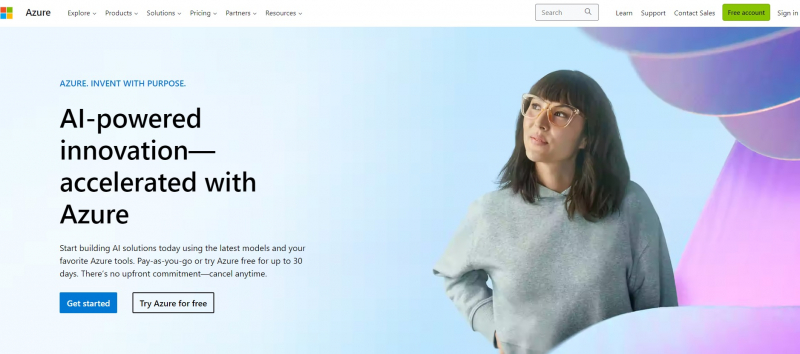
Screenshot via azure.microsoft.com 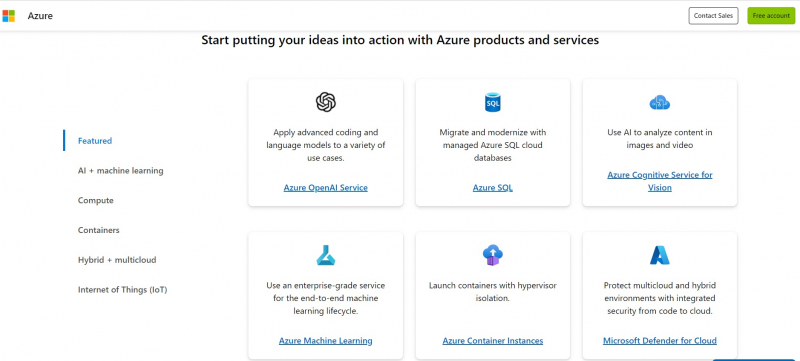
Screenshot via azure.microsoft.com -
Oracle Cloud is a computing administration service provided by Oracle Corporation. Oracle provides enterprises with a comprehensive suite of cloud applications and platform services and is well-known for its support of a wide range of workloads and software, including IoT, OLTP, AI, and machine learning programs.
Oracle has been at the forefront of cloud technology since its establishment. It is still an industry leader today due to its extensive suite of cloud technologies, which includes public clouds such as Amazon Web Services and private clouds such as Oracle Private Cloud Appliance (PCA).
Oracle's cloud architecture integrates both IaaS and PaaS models for optimum flexibility when it comes to installing apps or services on their platform. Additionally, with revenue expected to exceed £5 billion in 2022, it is apparent that Oracle Cloud Infrastructure is well-positioned to remain a leader in the cloud computing field.
Their wide offering of cloud services encompasses everything from cloud storage and database management solutions to cloud monitoring and analytics, making them an ideal partner for organizations of any size wanting to enhance their operating operations.
Founded: 2016
Headquarters: Austin, Texas, U.S.Official website: https://www.oracle.com/cloud
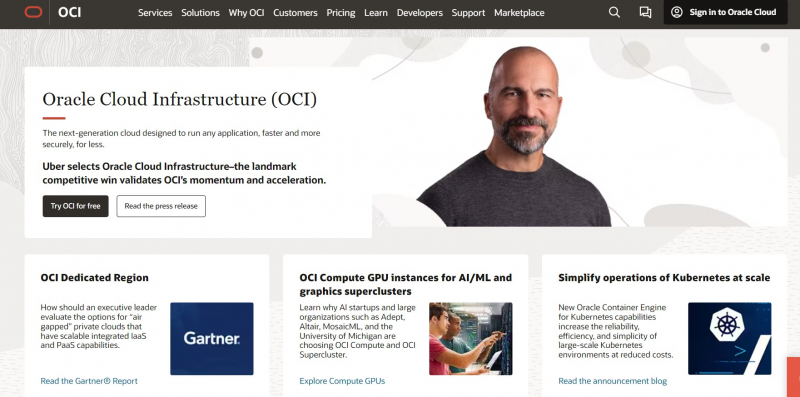
Screenshot via oracle.com 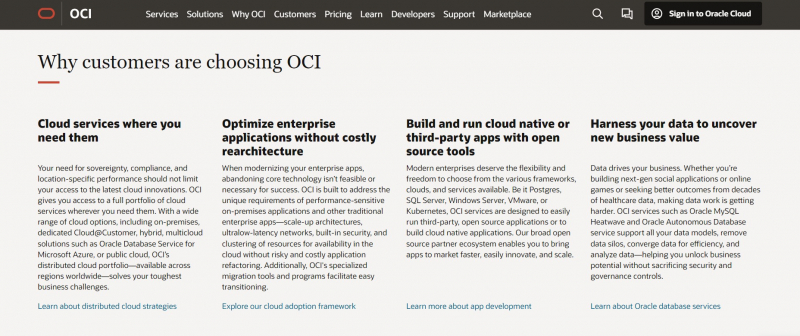
Screenshot via oracle.com -
Google Cloud Platform ranks fourth on the list of the largest cloud computing companies in Australia by revenue. GCP is a collection of cloud computing services provided by Google. It employs the same infrastructure as Google's end-user products, such as Google Search, Gmail, Google Drive, and YouTube.
It offers a set of management tools as well as a number of modular cloud services such as computing, data storage, data analytics, and machine learning. A credit card or bank account number is required for registration.
Google Cloud Platform is a subset of Google Cloud, which also includes Google Workspace (G Suite), enterprise versions of Android and ChromeOS, and application programming interfaces (APIs) for machine learning and enterprise mapping services.
GCP provides a wide range of services, including infrastructure as a service (IaaS) and platform as a service (PaaS). It also has extensive security measures in place to ensure that your data is always secure. Not only that, but Google Cloud Platform has higher security standards and artificial intelligence capabilities, allowing businesses to manage their data more effectively than ever before.
Founded: 2008
Headquarters: San Francisco, California, USOfficial website: https://cloud.google.com/
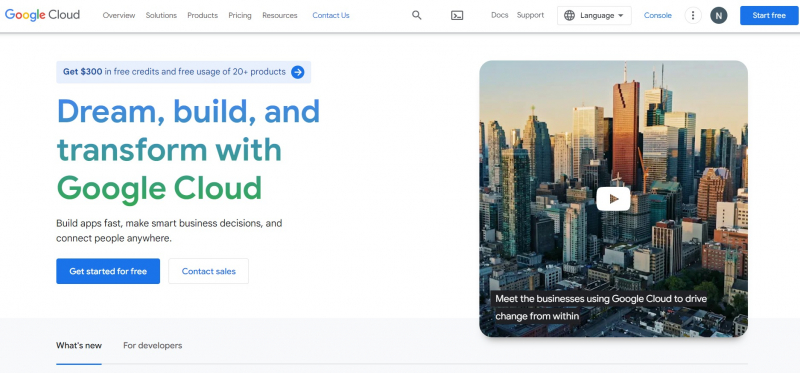
Screenshot via cloud.google.com 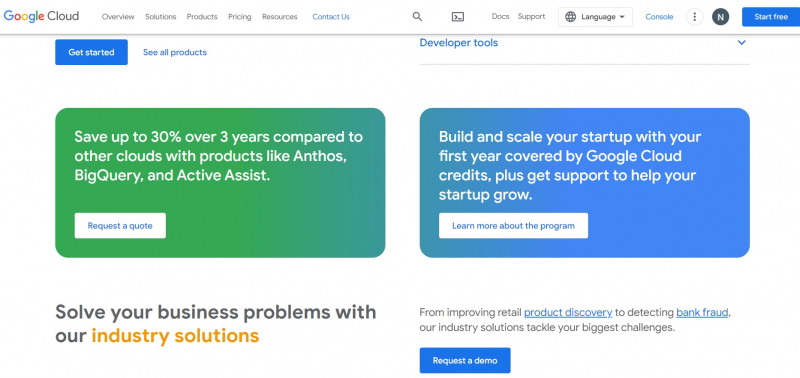
Screenshot via cloud.google.com -
The IBM Cloud is a cloud computing platform that offers SaaS, PaaS, and SaaS through all cloud delivery modes. Although IBM Cloud is somewhat smaller, it provides virtually the same functionality as other IaaS providers, particularly when it comes to multi-cloud development.
Its multi-cloud solution, IBM Cloud Satellite, can help you deploy and manage applications on-premises, at the edge, and in the public cloud. While few companies have fully embraced multi-cloud, IBM Cloud Satellite offers APIs, cloud services, regulatory features, and security controls across several operational infrastructures.
When developing your next application, you can use IBM Cloud to select your data models, tools, and delivery models. You may also incorporate high-performance cloud communications and services into your IT infrastructure with the help of IBM.
IBM Cloud will provide more than 170 services by 2021, including storage, development tools, networking, databases, machine learning, analytics, and computing services. In May 2017, IBM Cloud Container Service was renamed IBM Cloud Kubernetes Service.
Founded: 2005
Headquarters: New York, US
Official website: https://www.ibm.com/cloud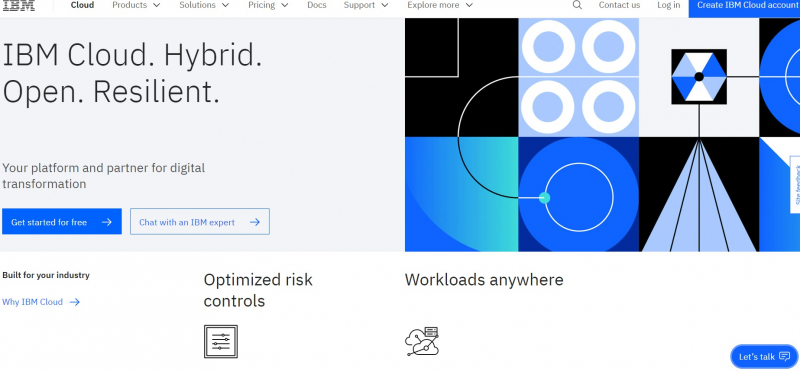
Screenshot via ibm.com 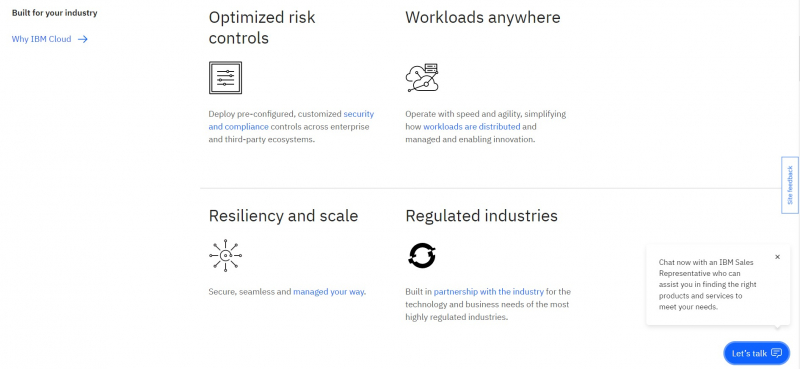
Screenshot via ibm.com -
Alibaba Group's cloud computing division, commonly known as Aliyun, is one of the world's largest cloud service providers. It is the largest provider in Asia-Pacific, offering services such as cloud database, storage, elastic computing, database, network virtualization, management, and application services.
The Singapore-based company has developed a comprehensive cloud infrastructure as well as multiple networking and operating systems. Although the major website is in English, it is also available in a number of other languages, including Mandarin and a few other Chinese dialects.
Regarding support, it provides a variety of self-service and support options, including live chat, a ticket system, and a toll-free phone number. This cloud computing company also has an excellent knowledge base, which includes a blog, a helpful FAQ section, and thorough step-by-step instructions.
Alibaba Cloud announced "Tech for Change" in 2019, a global program that encourages individuals and organizations to use technology to improve the world in areas such as education, environmental development, and sustainability. Alibaba Group generates the majority of cloud computing income, depending on usage and duration.
Founded: 2009
Headquarters: Singapore
Official website: https://www.alibabacloud.com/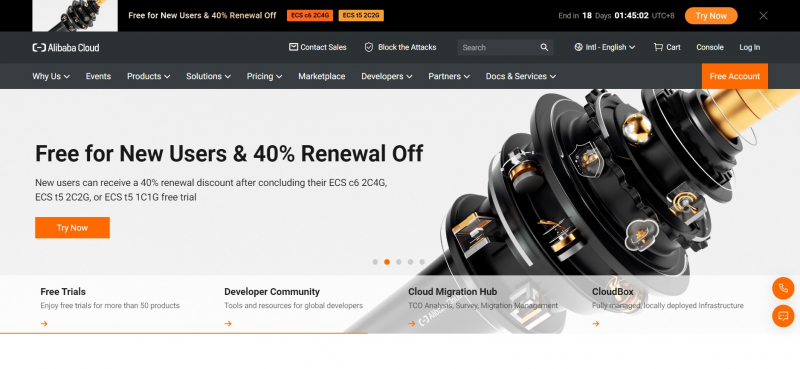
Screenshot via alibabacloud.com 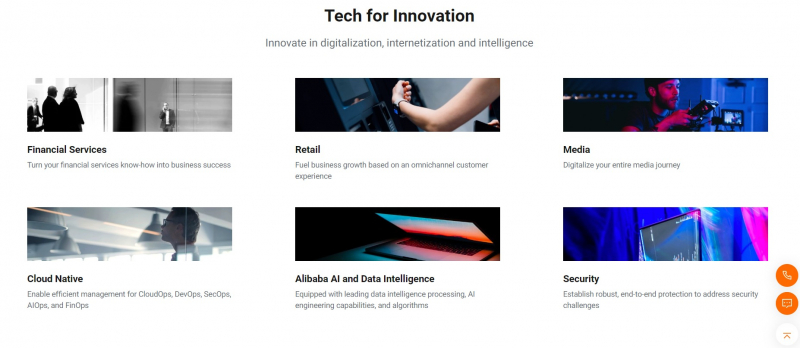
Screenshot via alibabacloud.com -
Egnyte is a software startup based in Mountain View, California. This corporation was started in 2007 and incorporated in 2008. Egnyte provides cloud solutions specifically targeted for enterprises, including complete file management and rigorous security. Its quality file support allows users to store apps and multimedia information of any size, with opportunities for data exchange among remote users.
Their Egnyte Connect Desktop Software also allows users to view their cloud files from their desktop, with the option to sync certain folders for offline access. Users using a mobile device can also access and share files via the Egnyte Mobile App. Furthermore, the technology enables corporate managers to monitor employee usage and activity on cloud files in real-time. In particular, users can also rest comfortably about data security because Egnyte supports "granular permissions" throughout its files, with the ability to deny or alter access at any level of the folder hierarchy.
Founded: 2007
Headquarters: California, US
Official website: https://www.egnyte.com/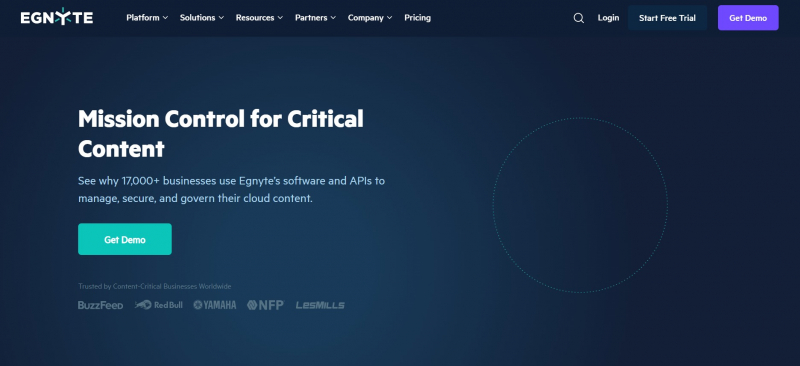
Screenshot via egnyte.com 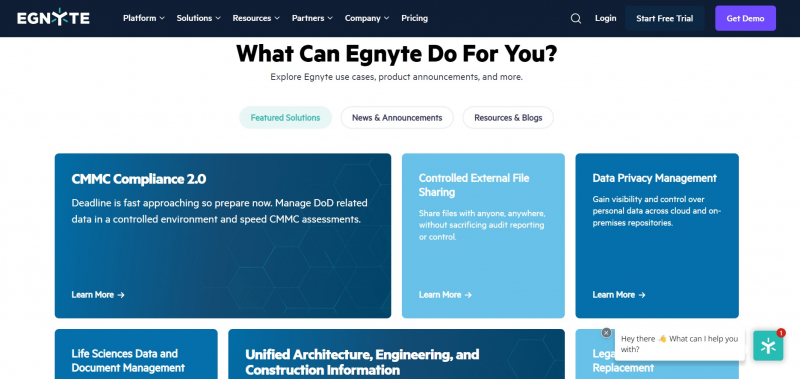
Screenshot via egnyte.com -
Chargify is a subscription management and recurring billing platform for subscription-based businesses that promises to eliminate the billing bottleneck by providing capabilities such as offer management, recurring billing, revenue retention, analytics, third-party integrations, and more.
Chargify takes pride in its ability to provide software-as-a-service (SaaS) organizations with simple, simplified billing solutions, allowing them to focus on productivity and operations rather than payment systems.
The platform offers industry-leading solutions for organizing your subscriptions and customers, right down to the transaction and component level. Additional billing operations, such as issuing refunds, logging external payments (in cash or check), or informing clients about their payment details, can also be completed directly from the Chargify platform.
Furthermore, users may stay up-to-date on their sales figures, which are displayed on Chargify's dashboard, with additional trends and patterns disclosed on the "Analytics" tab. The use of Chargify's services enables businesses to focus on what is most important in their operations while keeping their digital payments systemized and easy to track.
Founded: 2009
Headquarters: Texas, US
Official website: https://www.maxio.com/chargify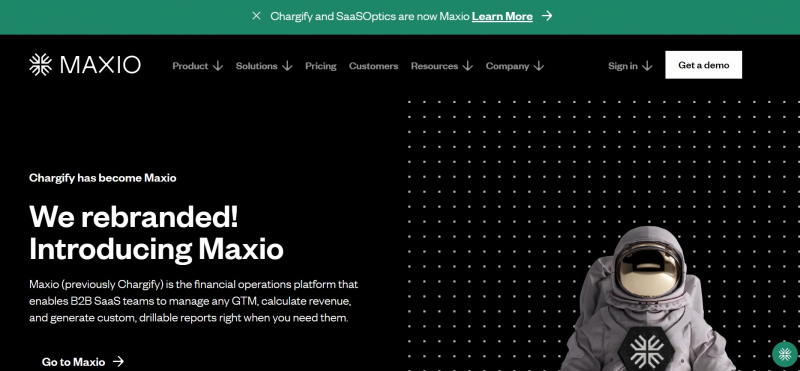
Screenshot via maxio.com 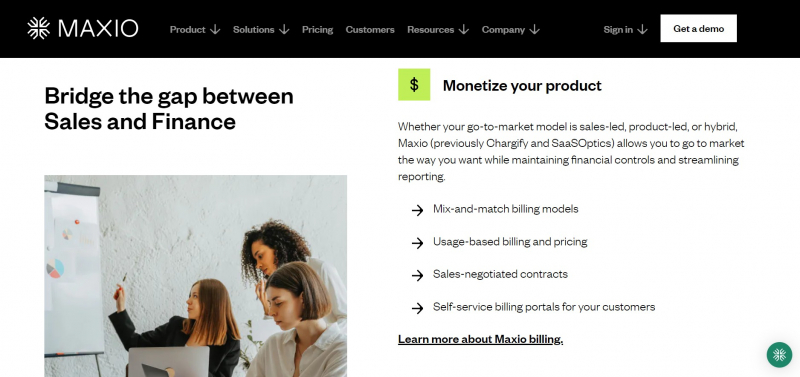
Screenshot via maxio.com -
CloudLinux is a commercial Linux distribution aimed at shared hosting companies. CloudLinux, Inc. is the business that created it. CloudLinux OS comes with a customized kernel based on the OpenVZ kernel. The Lightweight Virtual Environment (LVE) is the major feature, which is a separate environment with its own CPU, RAM, IO, IOPS, number of processes, and other constraints.
Cloud Linux distinguishes itself from other suppliers by providing users with complete network flexibility. Rather than providing a standard third-party experience, the service allows users to run their own cloud platform on their own servers.
Despite requiring more effort to set up, customers have greater control over their cloud resources, which is advantageous for businesses that spend considerably on their own IT infrastructure. The platform also makes use of LVE (LightWeight Virtual Environment) to isolate each tenant with their own limited, allotted server resources, ensuring that one account's activity does not impair the service for others.
Founded: 2010
Headquarters: California, US
Official website: https://www.cloudlinux.com/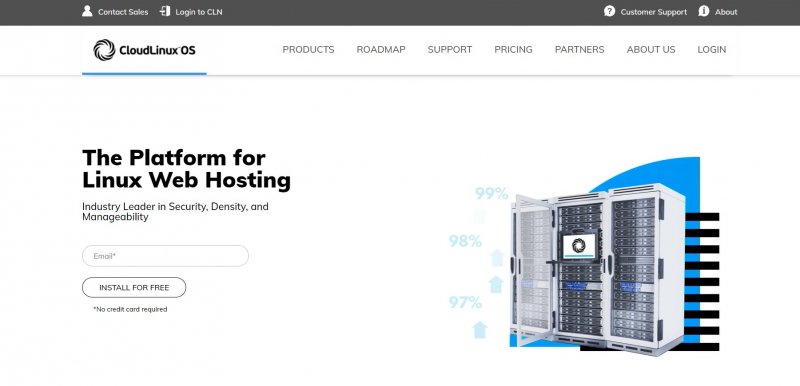
Screenshot via cloudlinux.com 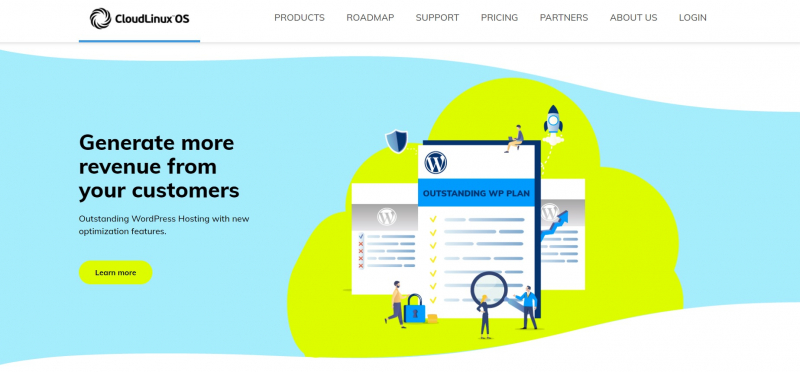
Screenshot via cloudlinux.com -
CloudSigma is another cloud services provider that offers appealing scalability alternatives, allowing users to choose the operating system and server characteristics that best suit their company's needs. They also take pride in their fast cloud performance, with a variety of storage options and applications to select from. Because of its geographical presence and planned expansion, CloudSigma seeks customers from all over the world.
CloudSigma offers utility computing services with open networking and software layers. With its utility approach and open platform, it has been recognized by the industry as an innovation in the field of infrastructure-as-a-service.
It was the first to provide Solaris cloud servers and a variety of additional service components. End users retain full administrative authority and can manage their virtual instances through the company's web-based provisioning interface, or API.
The technology also aids in hybrid cloud hosting by assisting users in balancing workloads across private and public cloud infrastructure. This is accomplished in collaboration with Equinix (another top provider of digital business solutions), which provides users with dedicated on-premise and public cloud storage.
Founded: 2009
Headquarters: Zürich, Switzerland
Official website: http://www.cloudsigma.com/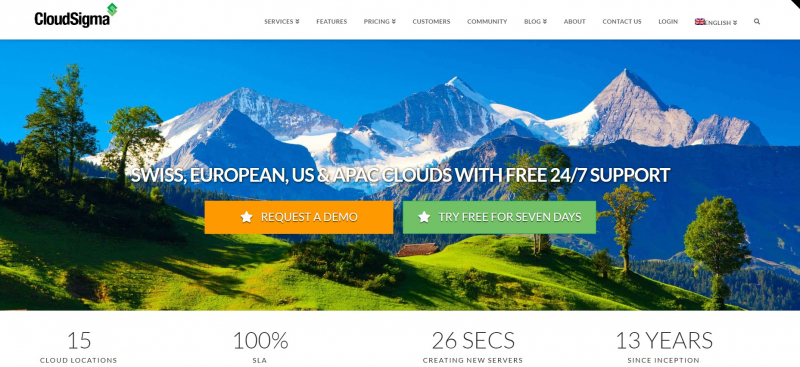
Screenshot via cloudsigma.com 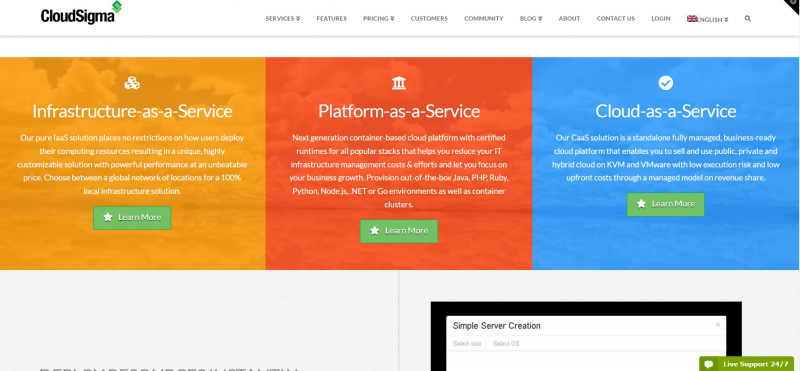
Screenshot via cloudsigma.com














